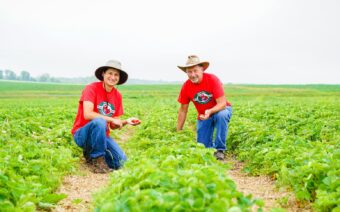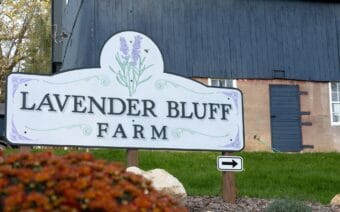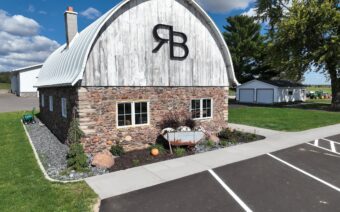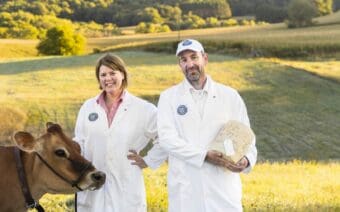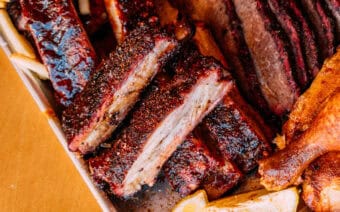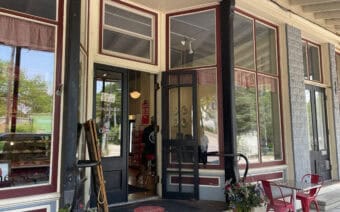December 23, 2024
NELSON – From its vegetable garden and orchard to its free-range turkeys, peafowl and chickens to its flock of approximately 100 Rambouillet/Merino crossbred ewes – sustainable agriculture and land conservation are front and center at Hickory Hills Farm in Buffalo County.
Located in a secluded valley in West Central Wisconsin, Owners Greg and Judie Sage said the story of Hickory Hills began nearly 50 years ago.
The Sages said they envisioned a life dedicated to healthy land management and healthy food when they moved to the Nelson property in 1978.
“It is our belief that food and animals should be grown and raised naturally,” Judie said.
That vision, Greg – who grew up in rural Iowa near relatives who farmed and always wanted to farm himself – said, started with 10 sheep and grew from there.
“We grew to 350 sheep (at one point), but downsized as we have aged to a more manageable number of approximately 100 ewes,” he said.
Hickory Hills Farm, Greg said, sells lamb, wool, turkey and chicken – which in recent years has shifted from large, wholesale orders to a more personal farm-to-fork model.
Sustainable from the beginning
Greg said he met Judie while they were both attending the University of Wisconsin-Madison.
The pair said they later married and lived in Maine for a few years where Greg ran a woodworking business, and Judy began her career as an occupational therapist.
The couple said they decided to return to the Midwest when they had kids, and Greg started looking for farmland.
“I told Greg when he bought the farm that I’d give him five years, and if I didn’t like it, we’d have to sell it,” Judie said.
When the Sages first bought the property, its “picturesque valley” and 200 acres needed some work before the farm could grow to what would become its peak population of 350 sheep.
“It was mostly abandoned buildings,” he said. “Tagged trees everywhere and lots of ditches. Through the years, we’ve gotten rid of all the trees in the bottom, put in waterways and filled the ditches. We built three dams and did a lot of conservation work to bring it back to a nice, grazing operation.”
Greg said they also implemented rotational grazing on the farm to support soil and pasture health, as well as crop rotations.
Farm work, the Sages said, is supported by four very important employees – Burnie (a 100-pound Great Pyrenees sheep guard dog), Owen, Seeger and Rocky (herding Border Collies).
Only adding dogs in 1998 (Great Pyrenees) and 2001 (Border Collies), Judie said “looking back, we wonder how we ever managed without them.”
“They are as prominent and vital on the farm as the sheep,” she said.
Greg said the Border Collies are used to herd and manage the flocks.
“The Pyrenees protect the sheep from being eaten by the coyotes,” he said. “We have a huge coyote population. So, in the periods where we’ve been without a Pyrenees, we’ve lost both sheep and fowl. And in the periods where we have had the dogs, we have not lost any.”
A few years ago, Greg said they took their focus on sustainable farming one step further with the installation of solar panels – which now “produce more energy than we use.”
Greg said Hickory Hills Farm practiced sustainable agriculture and land conservation from the start – an approach particularly unique at the time.
The rest of the country’s agriculture sector, he said, was embroiled in the farm crisis of the early 1980s, which shuttered many small, family farms.
Greg said his years of conservation-related work eventually earned him recognition from the USDA’s Natural Resources Conservation Services office in Wisconsin.
Pivoting with the industry
The Sages said the decision to transition from selling their animals wholesale to a more direct approach, was prompted by poor returns at the wholesale level.
“I started going to restaurants all the way from Eau Claire down through Winona and up through Red Wing to direct market,” he said. “There is a huge ethnic community in the (Twin) Cities that buy whole lambs from us, which we get processed in Mondovi, and we sell retail directly from our home.”
Greg said the farm has also established a strong connection to the Madison Public Market, delivering bulk orders there three times a year.
“The farm-to-table trend has really helped us,” Judie said. “Greg does a really nice job of raising the lambs, which are very much grass-fed, and people notice. The word spreads, and we’re very consistent in our product.”
Woolly in the details
With sheep comes shearing – which Greg said provided them with another business opportunity – wool.
The sheep at Hickory Hills Farm, he said, are shorn every spring before lambing begins, usually in mid-April.
Finding the wholesale route for wool was similar to that of meat, Judie said she started cultivating relationships with local mills and processing the yarn herself for sale on the farm’s website (hickoryhillsfarm.net).
Judie, a knitter herself, said Hickory Hills yarn is made from the finest wool from their Rambouillet and Merino sheep, which are known for their fine, soft wool.
Yarn, she said, is available in two-ply (sport weight) or three-ply (worsted weight).
Hickory Hills carries natural yarn, dyed yarn and roving (which is used by hand-spinners).
Time wool tell
After all these years, the Sages said they are content with the life they have built at Hickory Hills Farm and the business they have built.
The two said they plan to work on the farm as long as they are physically able to, while partnering on a succession plan with a young neighbor woman who works with them and wants to continue the farm’s emphasis on land conservation and sustainable agriculture.
The Sages said they have shared those principles with younger generations over the years as well by supporting 4H programs and welcoming school groups to the farm.
Judie said she also visits schools with her spinning wheel each year to educate kids about yarn production and the fiber arts.
As the farm enters its 47th year, Judie said it’s safe to say that Greg liked farming.
“This farm is something special,” she said. “It’s a valley farm. I really like the rural lifestyle of neighbors helping other neighbors. We’re part of a special community – that just doesn’t happen in the city, because it doesn’t have to. Here, people depend on each other.”
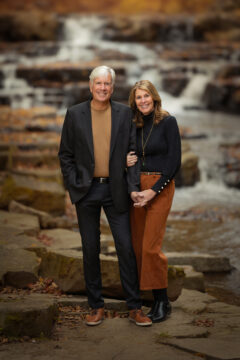 45 years of creating memories, bringing out beauty
45 years of creating memories, bringing out beauty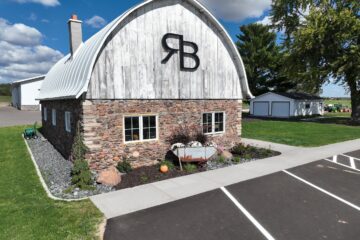 From ranching to retail, Ranch Brand Meat Company controls entire process
From ranching to retail, Ranch Brand Meat Company controls entire process

